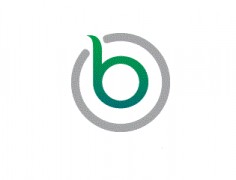You may be surprised to learn about the blood pressure benefits available from some of the other good-for-you foods that you are likely already eating…
Celery.
Celery is a centuries-old traditional Chinese medicine treatment for high blood pressure, and various contemporary research studies affirm its benefit. Besides being rich in potassium, celery also contains 3-n-butyl phthalide, a compound that allows better blood flow by relaxing muscles in the walls of blood vessels.
Celery is a centuries-old traditional Chinese medicine treatment for high blood pressure, and various contemporary research studies affirm its benefit. Besides being rich in potassium, celery also contains 3-n-butyl phthalide, a compound that allows better blood flow by relaxing muscles in the walls of blood vessels.
Garlic.
A review article in the Journal of Clinical Hypertension called garlic “an agent with some evidence of benefit” in reducing high blood pressure, with some estimates saying that it can reduce blood pressure by 2%. Garlic contains the vasodilator and muscle-relaxing compound adenosine.
A review article in the Journal of Clinical Hypertension called garlic “an agent with some evidence of benefit” in reducing high blood pressure, with some estimates saying that it can reduce blood pressure by 2%. Garlic contains the vasodilator and muscle-relaxing compound adenosine.
Beet juice.
Beets contain abundant nitrates, helpful in controlling blood pressure. Research from the Queen Mary University of London found that high blood pressure returned to normal levels when subjects were given two cups of beet juice per day.
Beets contain abundant nitrates, helpful in controlling blood pressure. Research from the Queen Mary University of London found that high blood pressure returned to normal levels when subjects were given two cups of beet juice per day.
Brown rice.
Recent research has shown that compounds in brown rice protect against hypertension by blocking an enzyme (angiotensin II) that increases blood pressure.
Recent research has shown that compounds in brown rice protect against hypertension by blocking an enzyme (angiotensin II) that increases blood pressure.
And Don’t Forget D!
Dr. Houston very much wanted Daily Health News readers to know that there is one supplement that is particularly important for blood pressure: Vitamin D, because it helps regulate a hormone called renin. “If Vitamin D is low, renin is increased,” Dr. Houston explained, adding “this, in turn, causes the arteries to constrict and increase blood pressure.” For more on renin and its affect on blood pressure, see Daily Health News, “Blood Pressure Medication Breakthrough,” January 4, 2011… and for additional information on how to get the right amount of D for your optimal health, see Daily Health News, “Is Vitamin D Dangerous?,” January 20, 2011.
Source(s):
Mark Houston, MD, MS, associate clinical professor of medicine at Vanderbilt University School of Medicine and director of the Hypertension Institute, Vascular Biology and the Life Extension Institute at Saint Thomas Hospital in Nashville. He is author of What Your Doctor May Not Tell You About Hypertension (Grand Central) and the upcoming book, What Your Doctor May Not Tell You About Heart Disease (Grand Central).
